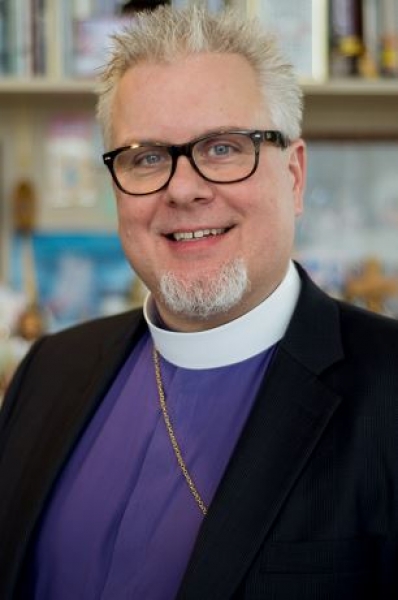SIM News

Words Of Wisdom On Leadership From Bishop Andy Doyle
03/28/21
In April, I spent an hour talking with Bishop Andrew Doyle of Texas, who has written extensively on the future of the church as well as his own share on the church in an age of transition: Citizen: Faithful Discipleship in a Partisan World and Vocatio: Imaging a Visible Church, and A Generous Community: Being the Church in a New Missionary Age, among others. Bishop Andy believes that in speaking of Christ & Culture, our cultural assumptions are outdated and not attuned to what the culture thinks and actually is. “Even H. Richard Niebuhr’s iconic assumptions,” he claims, “are old.” CVC
‘When we look at organizational structures, we always and only can see [from the perspective of ] looking back into the past or projecting into the future. We can’t see – or we have a very difficult time of seeing – organizations making paradigm shifts in the present, as they are occurring. You can only see this in retrospect. Adaptive change happens at interconnected levels, simultaneously, and you need the perspective of looking back on it in order to be able to see it.
If you’ve ever watched America’s Test Kitchen, the hit TV cooking show, there is an analogy. It’s not one thing that makes the best chicken. It’s different choices in multiple categories that all come together – choosing the best quality chicken to begin with; choosing the best combination of herbs to season it; perfecting the cooking time, temperature, etc. Similarly, doing my thing better is not going to fix it all when we’re talking about the church. Adaptive change that truly advances the life and mission of the church involves everything, and tinkering with it over hundreds of years: how we engage discipleship, the formation of the baptized, its content and how that is delivered, what kind of formation do you offer people? What is the ongoing formation and support of disciples in the wider system? I see the early disciples engaging a kind of action and reflection model over time that leads to adaptive change over time.
After eleven years as a bishop, I have learned one size does not fit all, and one thing is not going to change the church.
What is important is creating a safe space for adaptability and experimentation. How do you teach people to hold that safe space? I believe we need to form leaders for that, mentoring them through experiments in discipleship. We need to take people under our wings and support them as they play with all this.
I think of Frank Griswold and how all the crazy things he did as a liturgist in his late twenties made him who he is. We’ve got to let people do that. If we’re going to invest in the crafting of adaptive change, we have to give people the space for experimentation. For example, one of our most innovative priests – a church planter – is in conversation with a nondenominational, predominantly Asian, multi-cultural church about becoming an Episcopal church. Someone said, “The bishop will never let you do that.” Which begs the question, do we really want radical creativity? Organizations get the people they want. Right now, we have lots of people who are pastorally gifted and really good listeners. But we are at zero in terms of innovation.
The system picks the people who look like the system – otherwise, we weed them out. If you want that to change, you have to get much more comfortable with people who have their own ideas and who won’t necessarily listen to or agree with you. I think about the 1500 people attending 91 house churches in our diocese in any given week, and 90% are from no church background. People engaged in these churches have a better understanding.
